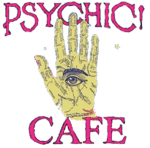Cara Hebert
What Element Am I?

In Asian culture, there is a strong focus placed on balance. As energy flows in one direction, it ebbs in another. From Feng Shui to holistic medicine, the interactions and relationships within the universe are only harmonious when kept in balance. The Five Elements Theory, or Wu Xing, is a Chinese philosophy that is used as the basis for everything from medicine, fortune-telling, martial arts and more. The five elements — earth, metal, wood, fire, and water — are believed to be the fundamental roots of the universe, between which interactions occur.
Each Chinese element has its own characteristics and associations and each plays a crucial role in the balance of the universe. No element is stronger or more important than another, and each has its own defined strengths and weaknesses. According to the Five ElementsTheory, all things arise from and return to the universe and are composed of these elements. This is why understanding our own connection to them is important.
Understanding the Chinese Elements Cycle
Each of the five elements stands independently, however, each influence and molds the others. The world’s interactions are determined by the Chinese elements creating and destroying each other. The process of creation promotes development, while the process of destruction restrains this development. The two are complementary processes and create a harmonious stillness when balanced.
For example:
Creation:
- Water feeds Wood.
- Wood fuels Fire.
- Fire makes Earth (ash).
- Earth produces Metal.
- Metal carries Water.
Destruction:
- Wood separates the Earth (i.e. roots).
- Earth absorbs Water.
- Water smothers Fire.
- Fire melts Metal.
- Metal penetrates Wood.
Find Your Chinese Element
In Chinese astrology, each zodiac sign is associated with one of the five elements — this association is your “lucky” element. Each element has a dominant year based on the Chinese zodiac animal. Below is a way to find your “lucky” element:
Your Chinese Animal Zodiac Sign
Rat: Intelligent, clever, charming and persuasive
2008, 1996, 1984, 1972, 1960, 1948, 1936
Ox: Stubborn, patient, conservative
2009, 1997, 1985, 1973, 1961, 1949, 1937
Tiger: Brave, passionate, commanding
2010, 1998, 1986, 1974, 1962, 1950, 1938
Rabbit: Earnest, likable, empathetic
2011, 1999, 1987, 1975, 1963, 1951, 1939
Dragon: Intrepid, cunning, spirited, strong
2012, 2000, 1988, 1976, 1964, 1952, 1940
Snake: Shy, friendly, astute, inviting
2013, 2001, 1989, 1977, 1965, 1953, 1941
Horse: Restless, wanderlust, self-reliant
2014, 2002, 1990, 1978, 1966, 1954, 1942
Sheep/Goat: Coy, timid, peaceful
2015, 2003, 1991, 1979, 1967, 1955, 1943, 1931
Monkey: Lively, boisterous, fun
2015, 2004, 1992, 1980, 1968, 1956, 1944, 1932
Rooster: Perceptive, diligent, pragmatic
2017, 2005, 1993, 1981, 1969, 1957, 1945, 1933
Dog: Loyal, kindhearted, forgiving
2018, 2006, 1994, 1982, 1970, 1958, 1946, 1934
Pig: Sympathetic, appreciative, honest
2019, 2007, 1995, 1983, 1971, 1959, 1947, 1935
Your “Lucky” Element
- Wood: Tiger, Rabbit
- Fire: Snake, Horse
- Earth: Ox, Dragon, Goat, Dog
- Metal: Monkey, Rooster
- Water: Pig, Rat
However, when asking “What Chinese Element Am I?” the real answer is determined entirely by your birth year.
If the last number in your birth year is:
- 0 or 1, you are a metal element.
- 2 or 3, you are a water element.
- 4 or 5, you are a wood element.
- 6 or 7, you are a fire element.
- 8 or 9, you are an earth element.
What Your Chinese Element Means
Wood
Wood is generous and expansive and cares deeply for others. As with bamboo, Wood is strong yet flexible and is a natural-born leader. Its roots dig deep into the Earth, constantly looking to expand and push forward. However, Wood also needs moisture to survive. The characteristics of Wood are often associated with sensuality and patience. However, to balance this, Wood can also be intrusive and aggressive.
Strengths:
- Patient and understanding
- Warm, sociable, and compassionate
- Flexible and adaptable
- Stable and practical
- Generous
Weaknesses:
- Doesn’t have a good grasp of boundaries or limits
- Can be too passive
- Yields easily under pressure
- Can rely too heavily on others
Fire
Fire is always directed upward and its energy seems never-ending. It is persistent and strong, however, it also spreads and wanders easily. Those with Fire as their element tend to be thrill-seekers, who roam from one adventurous moment to the next. Fire is often associated with warmth, passion and the need to create.
However, on the reverse side, it can also be related to aggression, impatience, and destruction. While fire can provide heat and warmth, it can also burn. Fire cannot exist on its own. While it is bright and exciting, it needs the stability of wood to continue thriving.
Strengths:
- Passionate and enthusiastic
- Creative
- Persuasive and charismatic
- Spontaneous and adventurous
- Always up for a challenge
- Warm and loving
Weaknesses:
- Attention seeking
- Impatient
- Manipulative
- Susceptible to mood swings
- Aggressive
- Impulsive and volatile
- Dislike being alone
Earth
Earth is stabilizing and mediating. It is a natural-born peace-keeper. Earth is patient, thoughtful, and calm. While the Earth is warm and nurturing, it can also become easily self-centered as it believes it is the center of everything. Earth is protective and the represent the roots that hold everything together, however, it can also become controlling. People of this element contain a vast amount of empathy and find themselves constantly worried about the happiness of others.
Strengths:
- Stable and rooted
- Serious, practical, and logical
- Compassionate, caring, and empathetic
- Responsible
- Loyal and honest
- Nurturing
- Organized and good at planning
- Strong and enduring
Weaknesses:
- Overprotective
- Stubborn
- Conservative — have trouble taking risks
- Reserved
Metal
Metal is the diamond found in the rough — it is the breath of life. Metal respects itself and also respects others. It is strong and hard but will adapt and change when put under pressure. Metal is often seen to be unyielding, rigid and determined. People with this element tend to be minimalists — enjoying the simplicity of an organized, clean life. However, on the negative side, Metal can also be forceful and controlling. Metal is matter-of-fact and does not see a need for complex or unnecessary emotion in its life.
Strengths:
- Courageous
- Ambitious and competitive
- Independent
- Determined, disciplined and focused
- High morals and high standards
Weaknesses:
- Lacks communication skills
- Stubborn and sometimes unreasonable
- Judging
- Susceptible to being cruel and merciless
- Cuts ties easily
- Jaded
Water
In Chinese Taoist philosophy, Water represents intelligence and wisdom. Water is flexible yet strong, flowing yet still, calm yet dangerous. For Water, the surface is only the beginning, with the real movement hidden in its depths. Those with the Water element are not reclusive, however, they enjoy their own company and time for inner reflection. They are often quiet and peaceful but have a great capacity to overwhelm others.
Strengths:
- Diplomatic
- Observant
- Empathetic and good mediators
- Persistent and determined
- Intuitive and flexible
- Gentle yet strong
Weaknesses
- Self-Indulgent
- Too passive
- Rely on others too much
- Indecisive
- Anxious
What are the Emotions Related to the Five Elements?
Fire
Joy, laughter, and passion are typically associated with the fire element. The desire for excitement and new experience is ever-persistent. The constant flickering and wavering of flames is symbolic of one’s constantly flowing energy. Sometimes this sentiment can be a little too intense leading to anxiety or unease, but it serves as a reminder to maintain equilibrium, never losing that energy and burning out.
Water
The water element is associated with fear and is often tied to darkness and cold. This fear, however, provides one with an awareness of the potential dangers or obstacles that could knock us off course in the ebbs and flows of our life path.
Earth
The Earth element represents worry, concern, and melancholy. Other emotions tied to Earth are pensiveness, overanalysis, and obsessiveness, which one needs to be aware of so as to prevent this element from leading them to be overly controlling.
Metal
Metal is associated with sadness or grief, as it represents an inability to be perfect. Serving as a reminder to remain stoic, strong, and resolute, metal also can prevent us from relaxing and letting go.
Wood
Wood as an element is tied to anger, frustration, and disappointment. As wood expands, it can become gnarled and stunted if it is not allowed to grow. This pent up stress can
Which Chinese Zodiac Sign Elements are Compatible?
Rat
Compatible with: Ox, Dragon, Monkey
Moderate with: Rat, Tiger
Incompatible with: Horse, Rooster
Ox
Compatible with: Rat, Snake, Rooster
Moderate with: Ox, Monkey
Incompatible with: Tiger, Dragon, Horse, Sheep
Tiger
Compatible with: Dragon, Horse, Pig
Moderate with: Rat, Rabbit
Incompatible with: Ox, Tiger, Snake, Monkey
Rabbit
Compatible with: Sheep, Monkey, Dog, Pig
Moderate with: Tiger, Rabbit, Dragon, Horse
Incompatible with: Snake, Rooster
Dragon
Compatible with: Rooster, Rat, Monkey
Moderate with: Rabbit, Horse
Incompatible with: Ox, Sheep, Dog
Snake
Compatible with: Dragon, Rooster
Moderate with: Dog
Incompatible with: Tiger, Rabbit, Snake, Sheep, Pig
Horse
Compatible with: Tiger, Sheep, Rabbit
Moderate with: Rabbit, Dragon, Monkey, Dog
Incompatible with: Rat, Ox, Rooster, Horse
Sheep
Compatible with: Horse, Rabbit, Pig
Moderate with: Rooster
Incompatible with: Ox, Tiger, Dog
Monkey
Compatible with: Ox, Rabbit
Moderate with: Horse, Rooster
Incompatible with: Tiger, Pig
Rooster
Compatible with: Ox, Snake
Moderate with: Sheep, Monkey, Pig
Incompatible with: Rat, Rabbit, Horse, Rooster, Dog
Dog
Compatible with: Rabbit
Moderate with: Ox, Snake, Horse, Dog
Incompatible with: Dragon, Sheep, Rooster
Pig
Compatible with: Tiger, Rabbit, Sheep
Moderate with: Rooster
Incompatible with: Snake, Monkey
Harmonizing Key Aspects of Your Life
By knowing the various characteristics and traits of the five Chinese elements, one can know when to spot their manifestations and balance them. This is the essence of Feng Shui for both your inner self as well as the expression of your outer self and environment. By maintaining harmony between these elements, one will find peace, health and prosperity.
Health
When it comes to health, the five elements are individually associated with particular organs and body parts. These element/organ pairings are subsequently associated with other parts of the body, as well as various tastes. Additionally, each element and its designated body part directly support and generate another creating one symbiotic whole.
Fire — Heart, small intestine, tongue, blood vessel; taste: bitter
Water — Kidney, Bladder, Ear, Bone; taste: salty
Earth —Spleen, Stomach, Mouth Muscle; taste Sweet
Metal —Lung, Large Intestine, Nose, Skin & Hair; taste: spicy
Wood — Liver, Gallbladder, Eye, Tendon; taste: sour
Spirit
The five Chinese elements are balanced by five elements of spirit which are considered to be the foundational features of our mind, soul, and personality. Much like the way these elements must be balanced in other aspects of life to which they are related, these elements and their spiritual counterparts should be relatively offset and proportionally equalized. Of course, everyone’s personality is unique, so some elements dominate others, though, like anything, an abundance of one at the expense of another leads to instability. However, when it comes to the five spirits there is a subtle hierarchy.
Below are the spiritual characteristics associated with each element
Shen — the Shen is considered to be the ruler of the heart and therefore given slightly more weight compared to other spiritual elements. It is associated with the fire element.
Hun — the Hun is associated with the soul and its intangible nature. It is tied to the nature of consciousness that exists beyond the physical body. It is associated with the wood element.
Po — Unlike the Hun, Po is associated with the consciousness that is tied to the body; the consciousness that dies when our physical body dies. It is associated with the metal element.
Yi — The Yi is tied to our analytical mind and our ability to rationalize and make decisions in daily life. It is associated with the Earth element
Zhi — Zhi characterizes our willpower and determination. It is associated with the water element.
If there’s one takeaway from the study of Wu Xing or the Chinese Five Elements, it’s that everything in life requires balance. By identifying the characteristics of one’s personality, behavior, and tendencies, one can see where they may have certain strengths, predilections, weaknesses, and vices. Acknowledging these and consciously ensuring that one doesn’t overpower or outweigh the others is the key to a happy and successful life. This philosophy’s limbs branch out to nearly every aspect of one’s life, including how one should seek personal relationships, maintain physical and mental health, and pursue success in business.
For more practices and content based on this theory, check out Clara Roberts-Oss’s series Explore the Elements and Staying Well Through the Seasons with Traditional Chinese Medicine.




